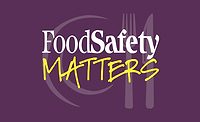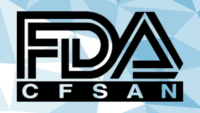Ep. 139. Dr. Susan Mayne: CFSAN's Mission, Today and Tomorrow

Susan Mayne, Ph.D., is the Director of the Center for Food Safety and Applied Nutrition (CFSAN) at the U.S. Food and Drug Administration (FDA). Dr. Mayne leads CFSAN in developing and implementing policies, programs, and initiatives to ensure the U.S. food supply is safe and healthy for consumers, and that food, dietary supplements, and cosmetics sold in the U.S. are safe and properly labeled. Under Dr. Mayne’s leadership, CFSAN works to reduce foodborne illness, protect consumers from harmful products, ensure that chemicals in food are found at levels that are not harmful, conduct and advance scientific research in support of food safety, and other efforts. Since taking up the role of CFSAN Director 2015, Dr. Mayne has overseen and implemented several landmark public health policies and initiatives, including issuing eight foundational rules and more than 50 guidances implementing FDA's Food Safety Modernization Act (FSMA).
Dr. Mayne received a B.A. degree in chemistry from the University of Colorado and a Ph.D. in nutritional sciences, with minors in biochemistry and toxicology, from Cornell University. Prior to joining FDA, Dr. Mayne spent nearly three decades at Yale University, where she held an endowed chair as the C.-E.A. Winslow Professor of Epidemiology. She also served as Chair of the Department of Chronic Disease Epidemiology at Yale and Associate Director of the Yale Cancer Center.
In this episode of Food Safety Matters, we speak with Dr. Mayne [34:55] about:
- CFSAN’s key accomplishments during Dr. Mayne’s tenure, including efforts such as the implementation of FSMA and working toward the Closer to Zero goals
- How FDA is working to reduce the presence of chemicals in the U.S. food supply through the Closer to Zero initiative
- The GenomeTrakr network, a genomic database including more than 1 million foodborne pathogen sequences, and how food safety can be advanced through whole genome sequencing (WGS)
- Lessons FDA has learned from the 2022 infant formula safety and supply crisis and actions the agency has taken, such as the release of a prevention strategy for powdered infant formula
- The potential for Cronobacter sakazakii to be elevated to a nationally notifiable disease
- Dr. Mayne’s thoughts on FDA’s recently announced vision for restructuring the agency’s Human Foods program and the Office of Regulatory Affairs (ORA), and how FDA's regulatory efforts will continue to address the evolving food safety landscape
News and Resources:
Salmonella in Chicken Increasingly Resistant to Critical Antibiotics, USDA-FSIS Reports [5:47]
NOAA Expands Seafood Import Monitoring to Combat Seafood Fraud [13:20]
Levels of Mercury in Tuna Cans Inconsistent, Says Consumer Reports [18:21]
PFAS Found in Eggs Laid by Hens that are Fed Contaminated Feed [21:34]
Online Produce Safety Handbook for Buyers Simplifies Regulations in Northeastern States [22:37]
Food Safety Insights Column, Bob Ferguson
How the Food Traceability Rule will Impact Food Processors—Part 1 [24:26]
Register for the 2023 Food Safety Summit with discount code FSM23Podcast for 10% off!
We Want to Hear from You!
Please send us your questions and suggestions to podcast@food-safety.com
Looking for a reprint of this article?
From high-res PDFs to custom plaques, order your copy today!







